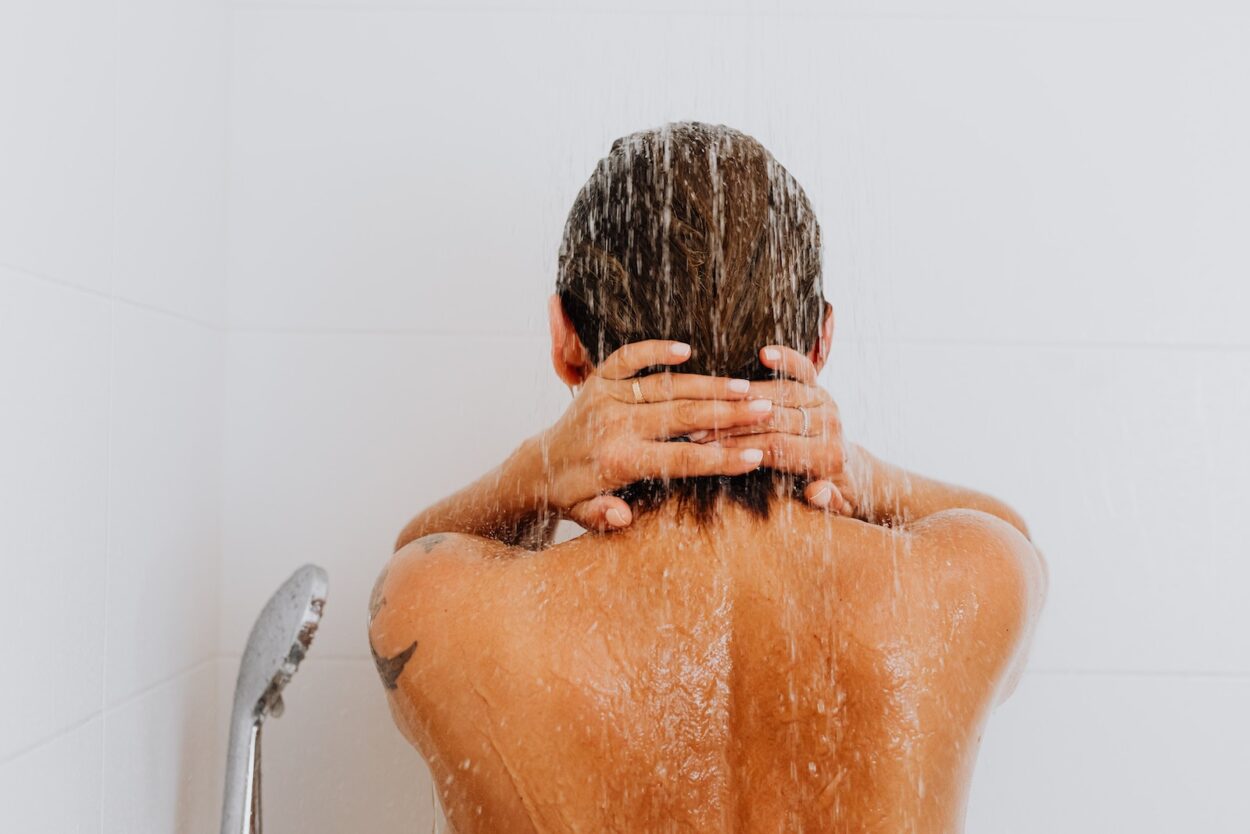Sex is messy and leaves your pleasure parts marinated in sweat, saliva, and other bodily fluids. That creates the perfect environment for microscopic bacteria to thrive, leading to infections like a UTI or bacterial vaginosis.
Fortunately, showering helps. Soap has molecules that target fats, destroying pathogens (bacteria and viruses) on contact.
1. Cleanliness
The moment after sex isn’t the prime time to think about hygiene, but cleaning up afterwards is essential for sexual health. Washing the genital area after sex prevents infection and irritation. It also helps prevent UTIs and vaginal yeast infections. A shower is ideal, but if a full-on rinse is too much to handle right after sex, you can simply gently cleanse the area with a cloth and warm water or baby wipes.
Showering after sex is especially important for women who are trying to conceive because it can help prevent vaginal and penile yeast infections. It’s important for men to clean the head of their penis as well, to prevent semen from getting into the urethra and potentially spreading bacteria.
Showering after sex doesn’t prevent STDs, however, since the bacteria that cause them are spread through oral, anal, and vaginal sex and skin-to-skin contact. But using barrier forms of protection, like condoms, internal condoms, and dental dams, can prevent them. You can also get regular STI testing to help detect any potential infection.
2. Hygiene
Sexual hygiene is all about minimizing risk while maximizing pleasure. That means using condoms, internal condoms, and dental dams before and during oral, vaginal, anal, and vaginal sex, as well as avoiding skin-to-skin contact. It also means washing anything that comes into contact with bodily fluids or skin, including lubricants and sex toys, with liquid antibacterial soap and hot water.
It’s also a good idea to drink some water after sex, since sweat can breed germs that could lead to bacterial infections like urinary tract infections (UTIs) for women and penile yeast infections for men. Showering can help get rid of these bacteria, as well as flush out toxins and other waste products.
But it’s important to note that showering after sex doesn’t reduce the chance of getting an STD, since many STDs are spread through viral, not bacterial, transmission. Instead, to lower the risk of getting an STD, use a reliable prevention method such as a rapid, same-day, anonymous STD test at a Rapid STD Testing location near you. And be sure to both urinate shortly after sex, since urine can prevent bacteria from reaching the bladder.
3. Relaxation
After sex, your body has a rush of hormones that can make you feel sleepy and relaxed. But falling asleep right after sex isn’t always the best idea because it can interrupt your sleep cycle and cause restless nights. Sleep experts recommend trying to avoid sexual activity close to bedtime to help promote a good night’s rest.
Showering after sex can also be a bonding experience, especially for couples who are more comfortable sharing the bath time. You can use the shower as an opportunity to talk about things that are important to you and your partner, or even make it a sensual experience by soaping and rubbing each other in a sensuous manner.
One thing you should never skip when it comes to showering after sex is emptying your bladder. OB/GYNs Allison Hill and Yvonne Bohn tell INSIDER that this is important because sexual activity can push bacteria up into your urethra. That bacteria can then enter your bloodstream and cause a urinary tract infection. It might not be super sexy, but it’s essential to your health.
4. Pain Relief
Showering is a great way to clean your body and relax post-sex, but it’s not the only thing you should do. If you’re experiencing pain during or after intercourse, there are a few things that could be to blame.
One possibility is that you’re not using enough lubrication. You can use a vaginal ring, a cream, gel, or oil to help with the lubrication and make it easier on both of you during intercourse. Another reason you may be feeling pain during sex is that your body is releasing hormones that cause cramping and other discomfort.
If you have a UTI, peeing right after sex can help. The quick flow of urine helps to flush out any bacteria that entered the urethra during sex, which can help prevent infection.
However, if you’re trying to conceive and showering is making it harder for your uterus to contract, the experts say that it probably won’t have much of an impact on conception rates. They also recommend washing your genitals gently with water and wiping from front to back.
5. Energy
Sex is a consuming activity, and it takes a lot of energy to have full intercourse, masturbation or orgasm. This drains the body of energy, leaving it exhausted afterward. It also drains the brain, so some people find that they aren’t able to concentrate or think clearly for a while after love-making.
It’s important to re-energize yourself after sex, but don’t just do this by showering. Instead, treat the act of love-making as a spiritual and sacred experience by cleansing yourself and your environment before, during and after. This could mean taking a bath, burning herbs or even using crystals to purify your aura.
Some people recommend peeing right after sex because it lowers the risk of urinary tract infections (UTIs). This is because harmful bacteria can transfer from the back to front area of the body, which could lead to bladder pain, pelvic discomfort and other symptoms. But if peeing isn’t an option, simply washing your vulva with warm water can also work. This helps wash away any bacteria and prevents infection. You should also try to stay hydrated by drinking lots of water to help with this process.




Leave a Comment